- Home
- Lois Lowry
A Summer to Die
A Summer to Die Read online
A Summer to Die
Lois Lowry
* * *
Illustrated by Jenni Oliver
* * *
HOUGHTON MIFFLIN COMPANY BOSTON
* * *
Library of Congress Cataloging in Publication Data
Lowry, Lois.
A summer to die.
SUMMARY: Thirteen-year-old Meg envys her sister's
beauty and popularity. Her feelings don't make
it any easier for her to cope with Molly's strange
illness and eventual death.
[1. Individualityn—Fiction. 2. Brothers and
sisters—Fiction. 3. Death—Fiction] I. Oliver,
Jenni. II. Title.
PZ7.L9673Su [Fic] 77-83
ISBN 0-395-25338-1
Copyright © 1977 by Lois Lowry
All rights reserved. For information about permission
to reproduce selections from this book, write to
Permissions, Houghton Mifflin Company, 215 Park Avenue
South, New York, New York 10003.
EB 21
Manufactured in the United States
1.
It was Molly who drew the line.
She did it with chalk—a fat piece of white chalk left over from when we lived in town, had sidewalks, and used to play hopscotch, back when we both were younger. That piece of chalk had been around for a long time. She fished it out of a little clay dish that I had made in last year's pottery class, where it was lying with a piece of string and a few paper clips and a battery that we weren't quite sure was dead.
She took the chalk and drew a line right on the rug. Good thing it wasn't a fuzzy rug or it never would have worked; but it was an old, worn, leftover rug from the dining room of our other house: very flat, and the chalk made a perfect white line across the blue—and then, while I watched in amazement (because it was unlike Molly, to be so angry), she kept right on drawing the line up the wall, across the wallpaper with its blue flowers. She stood on her desk and drew the line up to the ceiling, and then she went back to the other side of the room and stood on her bed and drew the line right up to the ceiling on that wall, too. Very neatly. Good thing it was Molly who drew it; if I had tried, it would have been a mess, a wavy line and off center. But Molly is very neat.
Then she put the chalk back in the dish, sat down on her bed, and picked up her book. But before she started to read again, she looked over at me (I was still standing there amazed, not believing that she had drawn the line at all) and said, "There. Now be as much of a slob as you want, only keep your mess on your side. This side is mine"
When we lived in town we had our own rooms, Molly and I. It didn't really make us better friends, but it gave us a chance to ignore each other more.
Funny thing about sisters. Well, about us, anyway; Dad says it's unacademic to generalize. Molly is prettier than I am, but I'm smarter than Molly. I want with my whole being to be something someday; I like to think that someday, when I'm grown up, people everywhere will know who I am, because I will have accomplished something important—I don't even know for sure yet what I want it to be, just that it will be something that makes people say my name, Meg Chalmers, with respect. When I told Molly that once, she said that what she wants is to have a different name when she grows up, to be Molly Something Else, to be Mrs. Somebody, and to have her children, lots of them, call her "Mother," with respect, and that's all she cares about. She's content, waiting for that; I'm restless, and so impatient. She's sure, absolutely sure, that what she's waiting for will happen, just the way she wants it to; and I'm so uncertain, so fearful my dreams will end up forgotten somewhere, someday, like a piece of string and a paper clip lying in a dish.
Being both determined and unsure at the same time is what makes me the way I am, I think: hasty, impetuous, sometimes angry over nothing, often miserable about everything. Being so well sorted out in her own goals, and so assured of everything happening the way she wants and expects it to, is what makes Molly the way she is: calm, easygoing, self-confident, downright smug.
Sometimes it seems as if, when our parents created us, it took them two tries, two daughters, to get all the qualities of one whole, well-put-together person. More often, though, when I think about it, I feel as if they got those qualities on their first try, and I represent the leftovers. That's not a good way to feel about yourself, especially when you know, down in the part of you where the ambition is, where the dreams are, where the logic lies, that it's not true.
The hardest part about living in the same room with someone is that it's hard to keep anything hidden. I don't mean the unmatched, dirty socks or the fourteen crumpled papers with tries at an unsuccessful poem on them, although those are the things that upset Molly, that made her draw the line. I mean the parts of yourself that are private: the tears you want to shed sometimes for no reason, the thoughts you want to think in a solitary place, the words you want to say aloud to hear how they sound, but only to yourself. It's important to have a place to close a door on those things, the way I did in town.
The house in town is still there, and it's still our house, but there are other people living in it now, which does something terrible to my stomach when I think about it too much. My room had red-and-white-checked wallpaper; there is a place in one corner, by a window, where I played three games of tick-tack-toe on the wallpaper with a Magic Marker. Cats' games, all of them. I played against myself, so it didn't matter much, but it's funny, how you want to win anyway.
The university clock in its high brick tower was just across the street from the house; at night, when I was supposed to be sleeping, I could hear it strike each hour, the chimes coming clear and well defined as silhouettes from the ivied circle of the numbered face in the dark. That's one of the things I miss most, living out here in the country, out here in the middle of nowhere. I like quiet. And it sure is quiet here. But there are times when I lie awake at night and all I can hear is Molly breathing in the bed next to mine; cars seldom go past on this road, and no clocks strike, nothing measures the moments. There is just this quiet, and it seems lonely.
The quiet is why we came. The university has given my dad just this year to finish his book. He worked on it for a while in the old house, shut in his study; but even though he was officially on leave from teaching, the students kept stopping by. "I just thought I'd drop in for a minute to see Dr. Chalmers," they'd say, standing on the porch, looking embarrassed. My mother would say, "Dr. Chalmers can't be disturbed," and then my father's voice would call from upstairs, "Let them in, Lydia, I want to stop for coffee anyway."
So my mother would bring them in, and they would stay for hours, having coffee, talking to Dad, and then he would invite them for dinner, and Mother would add some noodles to the casserole, wash another head of lettuce for the salad, or quickly peel a few more carrots for the stew. We would take hours eating, because everyone talked so much, and my father would open a bottle of wine. Sometimes it would be late at night before they left. I would be in bed by then, listening to the clock chime across the street as they said good-bye on the porch, lingering to ask questions, to exhaust an argument, to laugh at another of my father's anecdotes. Then I would hear my parents come upstairs to bed, and 1 would hear my father say, "Lydia, I am never going to finish this book."
The title of the book is The Dialectic Synthesis of Irony. When Dad announced that, very proud of it, at dinner one night, Mom asked, "Can you say that three times fast?" Molly and I tried, and couldn't, and it broke us up. Dad looked very stern, and said, "It is going to be a very important book"; Molly said, "What is?" and he tried to say the title again, couldn't, and it broke him up, too.
He tried to explain to me once what the title means, but he gave up. Molly said s
he understood it very well. But Molly is full of bull sometimes.
It was at breakfast the Saturday morning before Thanksgiving that Mom and Dad told us we were leaving the house in town. I had figured that something was going on, because my mother had been on the phone all week, and my mother is not the type of woman who talks on the phone very much.
"We've found a house," Mom said, pouring more coffee for herself and Dad, "out in the country so that your father can have some peace and quiet. It's a lovely house, girls, built in 1840, with a big fireplace in the kitchen. It's on a dirt road, and surrounded by one hundred sixty acres of woods and fields. When summer comes we'll be able to put in a vegetable garden —"
Summer. I guess Molly and I had been thinking the same thing, that she was talking about a month or so, maybe till after Christmas vacation. But summer. It was only November. We sat there like idiots, with our mouths open. I had been born while we lived in the house in town, thirteen years before, and now they were talking about leaving it behind. I couldn't think of anything to say, which is not unusual for me. But Molly always thinks of things to say.
"What about school?" she asked.
"You'll go by bus, to the Macwahoc Valley Consolidated School. It's a good school, and it's only about a twenty-minute bus ride."
"Can you say that three times fast?" asked Dad, grinning. "Macwahoc Valley Consolidated School?" We didn't even try.
Consolidated school. I didn't even know what that meant. To be honest, it sounded to me as if the school needed a laxative. Anyway, school wasn't my main concern. I was thinking about my Thursday afternoon art class, which was just about to get into oils after umpteen weeks on watercolors, and my Saturday morning photography class, where my photograph of the clock tower at sunset had just been selected Best of the Week, beating out the eight others in the class, which were all taken by boys.
But I didn't even ask about my classes, about what would happen to them when we moved to the country. Because I knew.
"Dad," groaned Molly. "I've just made cheerleader."
Boy, was that the wrong thing to say to my father. He's proud of Molly, because she's pretty and all hat, even though he always seems somewhat surprised by her, that all of a sudden since she turned fifteen, she has boyfriends and stuff. Every now and then he looks at her and shakes his head in a kind of astonishment, and pride. But he has this thing about priorities, and when Molly said that, he set down his coffee cup very hard and looked at her with a frown.
"Cheerleading," he said, "does not have top priority."
And that was that. It was all decided, and there wasn't anything to argue or fuss about. It was too busy a time, anyway. We almost skipped Thanksgiving, except that there were students who couldn't go home for the vacation, and so five of them spent that Thursday with us, and Mom cooked a turkey. But most of the day we packed. The students helped to put books into boxes, and some of them helped Mom, packing dishes and kitchen things. I did all my packing alone that week. I cried when I fitted my new, unused box of oil paints—a gift for my thirteenth birthday the month before—into a box, and I cried again when I packed my camera. But at least those things, the things I cared about most, were going with me. Molly had to give her blue and white cheerleading outfit to one of the substitute cheerleaders, a girl named Lisa Halstead, who pretended to be sad and sympathetic, but you could tell it was phony; she couldn't wait to get home and try on that pleated skirt.
And all of that was only last month. It seems like a hundred years ago.
Strange, how the age of a house makes a difference. That shouldn't surprise me, because certainly the age of a person makes a big difference, like with Molly and me. Molly is fifteen, which means that she puts on eyeshadow when Mom doesn't catch her at it, and she spends hours in front of the mirror arranging her hair different ways; she stands sideways there, too, to see what her figure looks like, and she talks on the phone every evening to friends, mostly about boys. It took her about two days to make friends in the new school, two days after that to have boyfriends, and the next week she was chosen as a substitute cheerleader.
Me, I'm only two years younger, and that seems to make such a difference, though I haven't figured out why. It's not only physical, although that's part of it. If I stand sideways in front of a mirror—which I don't bother doing—I might as well be standing backwards, for all the difference it makes. And I couldn't begin to put on eyeshadow even if I wanted to, because I can't see without my glasses. Those are the physical things; the real difference seems to be that I don't care about those things. Will I, two years from now? Or do I care now, and pretend I don't, even to myself? I can't figure it out.
As for friends? Well, the first day at the consolidated school, when the first teacher said, "Margaret Chalmers" and I told him, "Would you call me Meg, please," a boy on the side of the classroom called out, "Nutmeg!" Now, three weeks later, there are 323 people in the Macwahoc Valley Consolidated School who call me Nutmeg Chalmers. You know the old saying about with friends like that, who needs enemies?
But I was talking about the age of houses. As my mother had said, this house was built in 1840. That makes it almost one hundred and forty years old. Our house in town was fifty years old. The difference is that the house in town was big, with a million closets and stairways and windows and an attic, all sorts of places for privacy and escape: places where you could curl up with a book and no one would know you were there for hours. Places that were just mine, like the little alcove at the top of the attic stairs, where I tacked my photographs and watercolors on the wall to make my own private gallery, and no one bugged me about the thumbtack holes in the wall.
It's important, I think, to have places like that in your life, secrets that you share only by choice. I said that to Molly once, and she didn't understand; she said she would like to share everything. It's why she likes cheerleading, she said: because she can throw out her arms and a whole crowd of people responds to her.
Here, in the country, the house is very small. Dad explained that it was built this way because it was so hard to keep it warm way back then. The ceilings are low; the windows are small; the staircase is like a tiny tunnel. Nothing seems to fit right. The floors slant, and there are wide spaces between the pine boards. If you close a door, it falls open again all on its own, when you're not looking. It doesn't matter much, the doors not closing, because there's no place for privacy anyway. Why bother to close the door to your room when it's not even your own room?
When we got here, I ran inside the empty house while the others were all still standing in the yard, trying to help the moving van get turned around in the snowy driveway. I went up the little flight of stairs, looked around, and saw the three bedrooms: two big ones, and the tiny one in the middle, just off the narrow hall. In that room the ceiling was slanted almost down to the floor, and there was one window that looked out over the woods behind the house, and the wallpaper was yellow, very faded and old but still yellow, with a tiny green leaf here and there in the pattern. There was just room for my bed and my desk and my bookcase and the few other things that would make it really mine. I stood for a long time by that one window, looking out at the woods. Across a field to the left of the house, I could see another house far away; it was empty, the outside unpainted, and the windows, some of them broken, black like dark eyes. The rectangle of the window in the little room was like the frame of a painting, and I stood there thinking how I would wake up each morning there, looking out, and each day it would change to a new kind of picture. The snow would get deeper; the wind would blow those last few leaves from the trees; there would be icicles hanging from the edge of the roof; and then, in spring, things would melt, and change, and turn green. There would be rabbits in the field in the early morning. Wild flowers. Maybe someone would come to live in that abandoned house, and light would come from those dark windows at night, across the meadow.
Finally I went downstairs. My mother was in the empty living room, figuring out how to fit in the
big couch from the other house. Dad and Molly were still outside, sprinkling salt on the driveway so that the moving men wouldn't slip on the snow.
"Mom," I said, "the little room is mine, isn't it?"
She stopped to think for a minute, remembering the upstairs of the new house. Then she put her arm around me and said, "Meg, the little room is for Dad's study. That's where he'll finish the book. You and Molly will share the big bedroom at the end of the hall, the one with the pretty blue-flowered wallpaper."
Mom always tries to make things right with gestures: hugs, quick kisses blown across a room, waves, winks, smiles. Sometimes it helps.
I went back upstairs, to the big room that wasn't going to be all mine. From the windows I could still see the woods, and part of the empty house across the field, but the view was partly blocked by the big gray falling-down barn that was attached to our house on the side. It wasn't the same. I'm pretty good at making the best of things, but it wasn't the same.
Now, just a month later, just two days before Christmas, the house looks lived in. It's warm, and full of the sound of fires in the fireplaces, the sound of Dad's typewriter upstairs, and full of winter smells like wet boots drying, and cinnamon, because my mother is making pumpkin pies and gingerbread. But now Molly, who wants more than anything to throw out her arms and share, has drawn that line, because I can't be like those crowds who smile at her, and share back.
2.
Good things are happening here. That surprises me a little. When we came, I thought it would be a place where I would just have to stick it out, where I would be lonely for a year. Where nothing would ever happen at all.

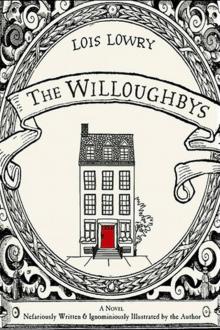 The Willoughbys
The Willoughbys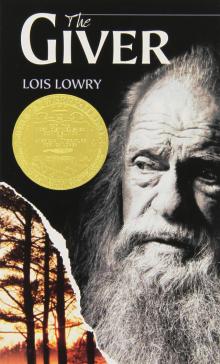 The Giver
The Giver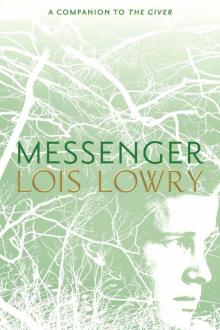 Messenger
Messenger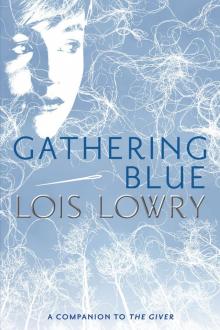 Gathering Blue
Gathering Blue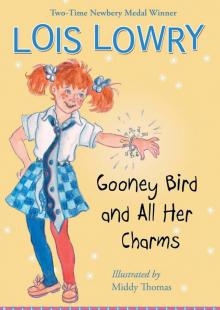 Gooney Bird and All Her Charms
Gooney Bird and All Her Charms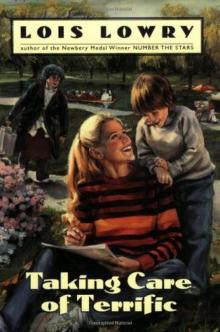 Taking Care of Terrific
Taking Care of Terrific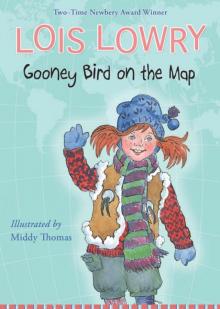 Gooney Bird on the Map
Gooney Bird on the Map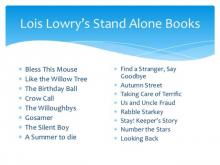 The Birthday Ball
The Birthday Ball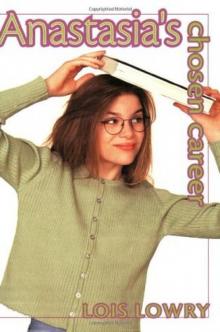 Anastasia's Chosen Career
Anastasia's Chosen Career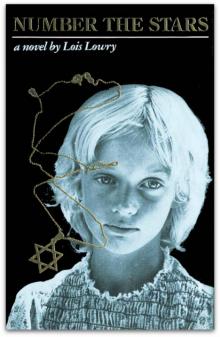 Number the Stars
Number the Stars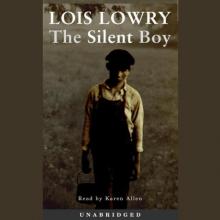 The Silent Boy
The Silent Boy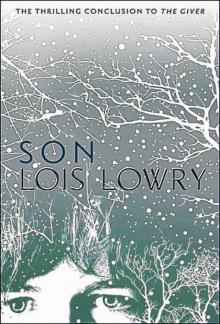 Son
Son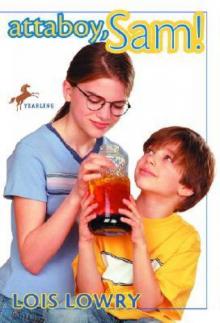 Attaboy, Sam!
Attaboy, Sam!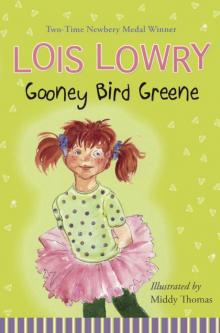 Gooney Bird Greene
Gooney Bird Greene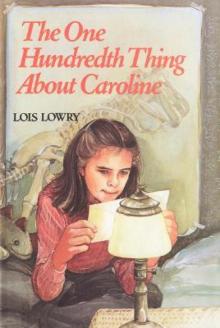 The One Hundredth Thing About Caroline
The One Hundredth Thing About Caroline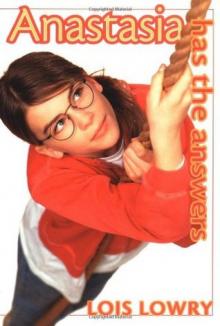 Anastasia Has the Answers
Anastasia Has the Answers Your Move, J. P.!
Your Move, J. P.!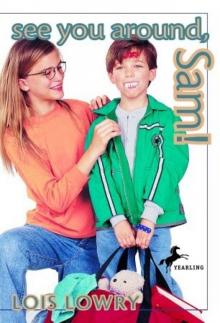 See You Around, Sam!
See You Around, Sam!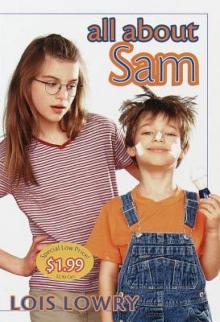 All About Sam
All About Sam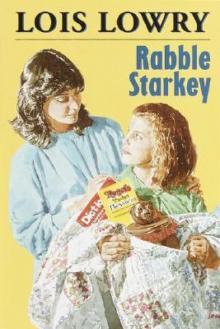 Rabble Starkey
Rabble Starkey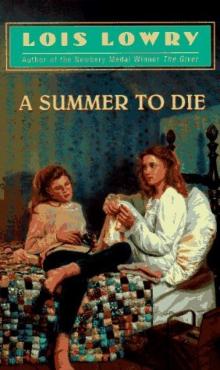 A Summer to Die
A Summer to Die Anastasia at This Address
Anastasia at This Address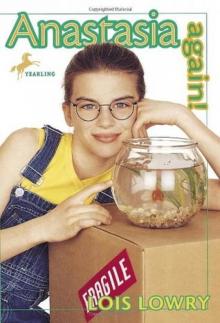 Anastasia Again!
Anastasia Again!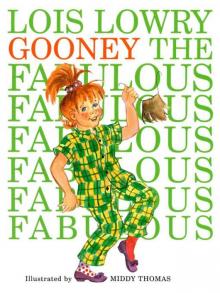 Gooney the Fabulous
Gooney the Fabulous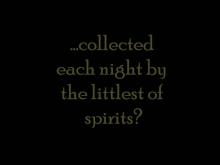 Gossamer
Gossamer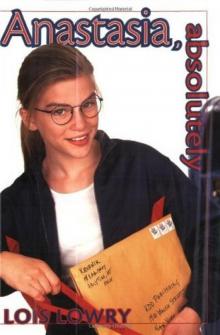 Anastasia, Absolutely
Anastasia, Absolutely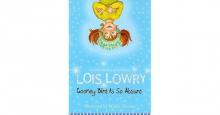 Gooney Bird Is So Absurd
Gooney Bird Is So Absurd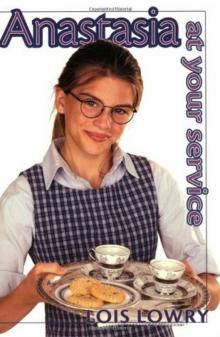 Anastasia at Your Service
Anastasia at Your Service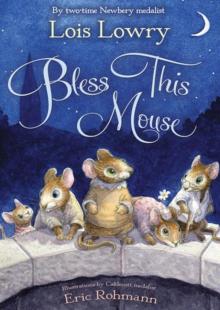 Bless this Mouse
Bless this Mouse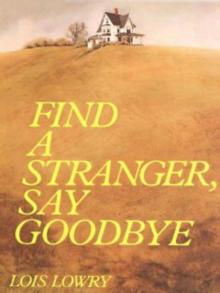 Find a Stranger, Say Goodbye
Find a Stranger, Say Goodbye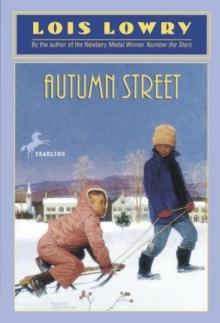 Autumn Street
Autumn Street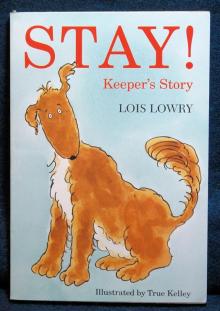 Stay Keepers Story
Stay Keepers Story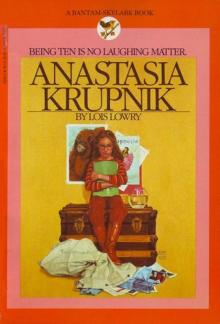 Anastasia Krupnik
Anastasia Krupnik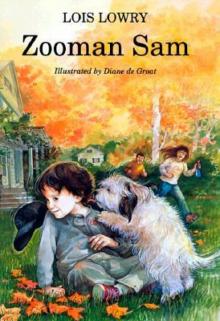 Zooman Sam
Zooman Sam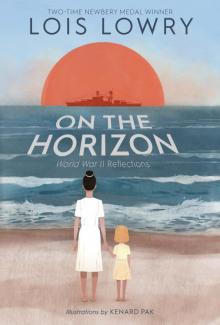 On the Horizon
On the Horizon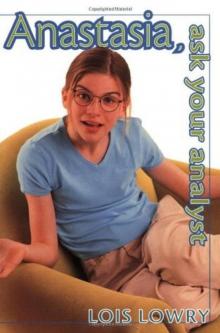 Anastasia, Ask Your Analyst
Anastasia, Ask Your Analyst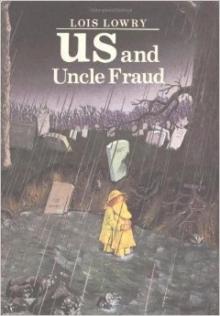 Us and Uncle Fraud
Us and Uncle Fraud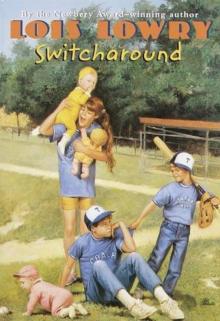 Switcharound
Switcharound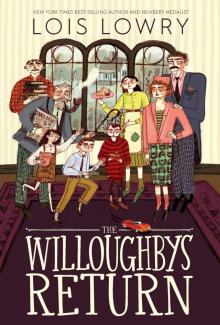 The Willoughbys Return
The Willoughbys Return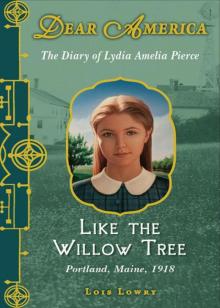 Dear America: Like the Willow Tree
Dear America: Like the Willow Tree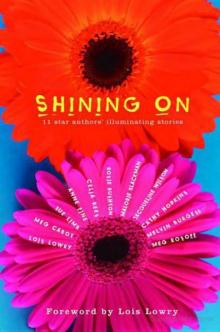 Shining On
Shining On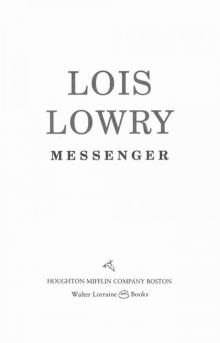 Messenger (The Giver Trilogy)
Messenger (The Giver Trilogy)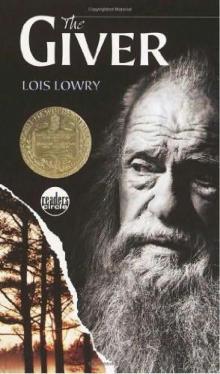 Giver Trilogy 01 - The Giver
Giver Trilogy 01 - The Giver